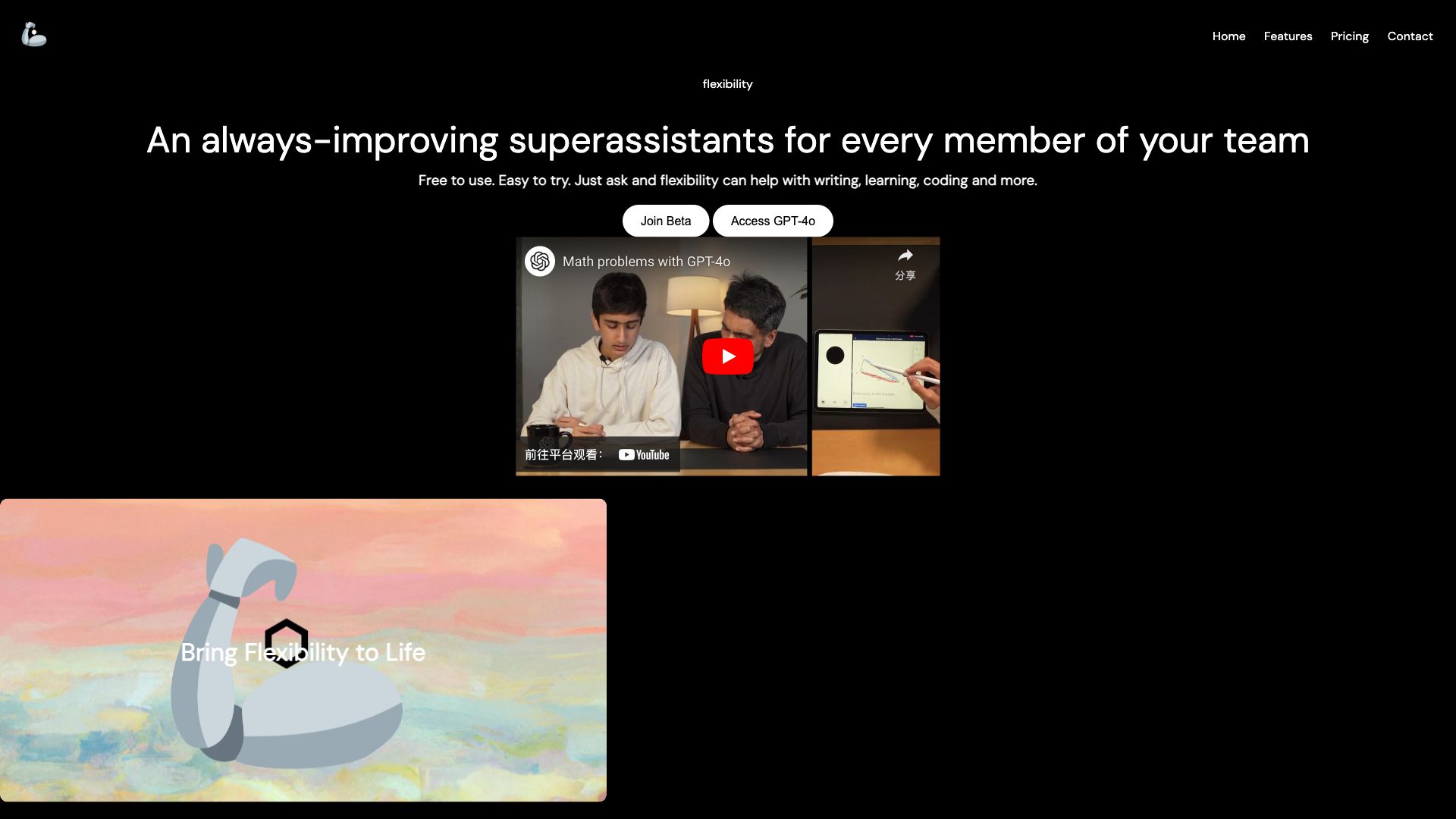
Flexibility Introduction
Flexibility is a large language model (LLM) designed for flexible and robust text generation. It allows users to fine-tune the model to create custom text outputs, making it suitable for a variety of tasks, including story writing, content creation, and code generation.
Flexibility Features
Flexibility offers a range of features for customization and text generation:
- Fine-Tuning: Allows users to train the model on specific datasets to improve its performance on desired tasks.
- Text Generation: Generates different types of text, including stories, articles, summaries, and code.
- Text Editing: Can be used to edit existing text, such as rewriting sentences, paraphrasing, or correcting grammar.
- Text Summarization: Provides concise summaries of longer texts.
- Code Generation: Generates code in various programming languages, based on user prompts.
Flexibility Advantages
- Customization: Users can fine-tune the model to meet their specific needs and applications.
- Versatility: Suitable for a wide range of tasks, including content creation, writing, and coding.
- Efficiency: Reduces time and effort for generating text, editing, and summarizing.
- Open-Source: Flexibility is an open-source project, allowing for community contributions and collaboration.
- Flexibility: The model can be adapted to various languages and domains.
Flexibility Price:
Flexibility is an open-source project, and its use is free. There are no associated costs for using the model.
Flexibility Use Cases
Flexibility can be used in numerous applications, including:
- Content Creation: Generate articles, blog posts, social media content, and marketing materials.
- Story Writing: Create original stories, scripts, and poems.
- Code Generation: Generate code in various programming languages, such as Python, JavaScript, and C++.
- Translation: Translate text between multiple languages.
- Data Analysis: Generate summaries and insights from large datasets.
Flexibility Frequently Asked Questions
What is Flexibility?
Flexibility is a large language model (LLM) designed for flexible and robust text generation. It is trained on a massive dataset of text and code, enabling it to generate various types of text, edit existing content, and generate code in multiple programming languages.
How is Flexibility different from other LLMs?
Flexibility allows for fine-tuning, which means users can customize the model to meet their specific needs and applications. This makes it suitable for a wider range of tasks and allows for better performance on specific domains.
Can I use Flexibility for commercial purposes?
Yes, Flexibility is an open-source project and can be used for both commercial and non-commercial purposes.
What are the limitations of Flexibility?
Flexibility, like other LLMs, may sometimes generate inaccurate or biased text. It is essential to review and edit any generated text before using it in public.
What languages does Flexibility support?
Flexibility supports multiple languages, including English, French, German, Spanish, and more. The model's proficiency in each language may vary depending on the training data.
How do I access and use Flexibility?
Flexibility is available through its GitHub repository. You can access the model's code and documentation to learn more about its features and usage.
Flexibility Price and Service
Flexibility is an open-source project, and its use is free. There are no associated costs for using the model. You can access the model's code and documentation freely through its GitHub repository.